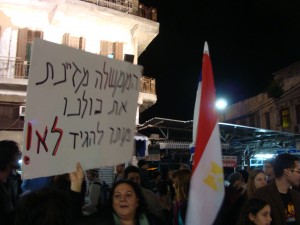 Mondoweiss, February 28, 2011
Mondoweiss, February 28, 2011
The Huffington Post, February 28, 2011
It’s big news here in Israel that “Strangers No More“– a documentary film that focuses on a South Tel Aviv school attended by zarim, Hebrew for foreigners or strangers–has won an Oscar.
“Thank you most of all to the exceptional immigrant and refugee children from 48 countries at Tel Aviv’s remarkable Bialik Rogozin school,” Karen Goodman, co-producer and co-director said in her acceptance speech. “You’ve shown us that through education, understanding, and tolerance, peace really is possible.”
So what is the Israeli government showing us by planning a mass expulsion of such children? Understanding and tolerance won’t be found here. (And you’d better look somewhere else for peace, too).
After a five month delay (the expulsion was scheduled to begin in October 2010), which followed a year-long battle over the matter, the deportation of 400 children and their parents is scheduled to begin on Sunday–just a week after “Strangers No More” won an Oscar. Just a week after a crowd in the US applauded the touching story of foreigners who find a home here in Israel. Just a week after the Israeli media runs its hip-hip-hooray! reports of the win, the Oz Unit will start rounding such kids up.
Continue reading “Israel preparing to deport star of Oscar winning documentary “Strangers No More””

